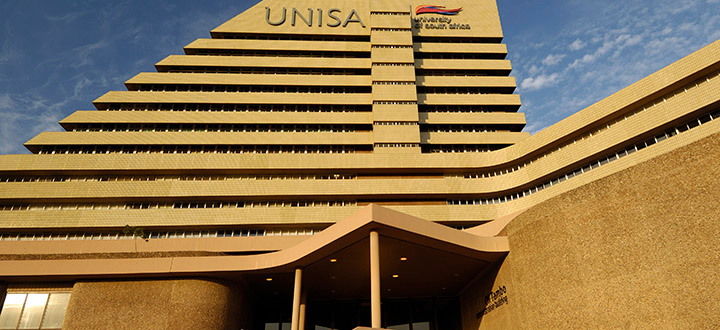News & Media
SA tax compliance costs include the 'fear factor'
 The cost of complying with their tax obligations is not necessarily only financial; for some South African taxpayers, there is a psychological cost, too—known as the “fear factor”.
The cost of complying with their tax obligations is not necessarily only financial; for some South African taxpayers, there is a psychological cost, too—known as the “fear factor”.
This is according to tax expert Prof Sharon Smulders of Unisa’s College of Accounting Sciences, who looked into the tax fear factor while doing her PhD on the cost of tax compliance among small businesses and is now doing research on the tax compliance costs of all South African taxpayers.
“People are afraid of the revenue authority, some because they may be evaders but others because they are scared of making a mistake and consequently facing fines and penalties,” says Smulders, a chartered accountant turned academic.
The fear of an inadvertent error stems from the increasing complexity of and constant changes in South Africa’s tax laws, she says.
“This fear can lead to an increase in the financial cost of complying with one’s tax obligations. For example, an individual taxpayer or small business owner may not want to do their own tax return and would rather pay a practitioner to do it, adding to their costs.”
Smulders says the fear factor could be amplified in the current tax climate if the South African Revenue Service (SARS) reverts to using “the stick” rather than carrot to persuade taxpayers to pay their dues.
Her latest research is on the total tax compliance costs—financial and psychological—of all types of South African taxpayers, meaning individuals and small, medium and large businesses. The project will run for the next three years, with Smulders leading a team of four researchers from the Nelson Mandela University, University of Pretoria, Unisa and the Tshwane University of Technology respectively.
First of its kind
This is the first time in South Africa that this particular research is being done. “Countries such as Australia did this kind of research 20 years ago but, other than my own research in 2012 on compliance costs for small businesses, not in South Africa. We are catching up,” Smulders says.
The project comes at a time when tax compliance costs appear to be on the increase in the country for taxpayers across the board.
“Large corporations are feeling the pinch—and that is something relatively new,” says Smulders, adding that large companies have recently been expressing their disgruntlement over increased tax compliance costs through channels such as the Chief Financial Officers Forum and the South African Institute of Chartered Accountants (SAICA).
“They state that this increase, especially since 2008, is due to various additional compliance and disclosure procedures required of them by SARS.
Additional procedures for SARS add to the load
A common complaint from large businesses is that they are being required to do SARS’ work for it.
For example, banks are expected to furnish SARS with the annual bank certificates of all bank customers, while medical schemes, insurance companies, and pension funds are also compelled to provide certain tax-related information to SARS about their members.
“The sentiment is that they have to employ people in order to comply with SARS’ information requirements, for no benefit,” Smulders says, noting that these additional compliance costs are then typically passed on to their customers.
Her new research project has the support of industry bodies such as SAICA, as well as SARS.
The efficiency of a tax regime—a critical criterion for a fair tax system—can be assessed by reviewing the quantifiable data from a tax compliance cost survey, Smulders says. An efficient tax system, particularly in developing and transitional economies, is critical not only to increase government revenue but also to promote investment in a country and to increase employment, as well as long-term growth of a country’s economy.
“SARS realises that tax compliance costs affect the economic behaviour of both individuals and businesses and seem to be connected to the level of compliance in that they could result in an increase in tax evasion. In order to assist taxpayers where possible, SARS wants to establish the key drivers of these costs so that can focus their efforts in order to improve tax compliance wherever possible,” Smulders says.
*By Clairwyn van der Merwe
Publish date: 2018-11-06 00:00:00.0

 Community champion and agricultural entrepreneur extraordinaire honoured by Unisa
Community champion and agricultural entrepreneur extraordinaire honoured by Unisa
 Ghanaian-born Swede earns PhD in Information Sciences from Unisa
Ghanaian-born Swede earns PhD in Information Sciences from Unisa
 Unisa awards honorary doctorate to exemplary philanthropist and entrepreneur Collen Tshifhiwa Mashawana
Unisa awards honorary doctorate to exemplary philanthropist and entrepreneur Collen Tshifhiwa Mashawana
 Inhlanyelo Hub explores financing and sustainability at the International Conference on Business Incubation
Inhlanyelo Hub explores financing and sustainability at the International Conference on Business Incubation
 Unisa remains anchored among the waves
Unisa remains anchored among the waves